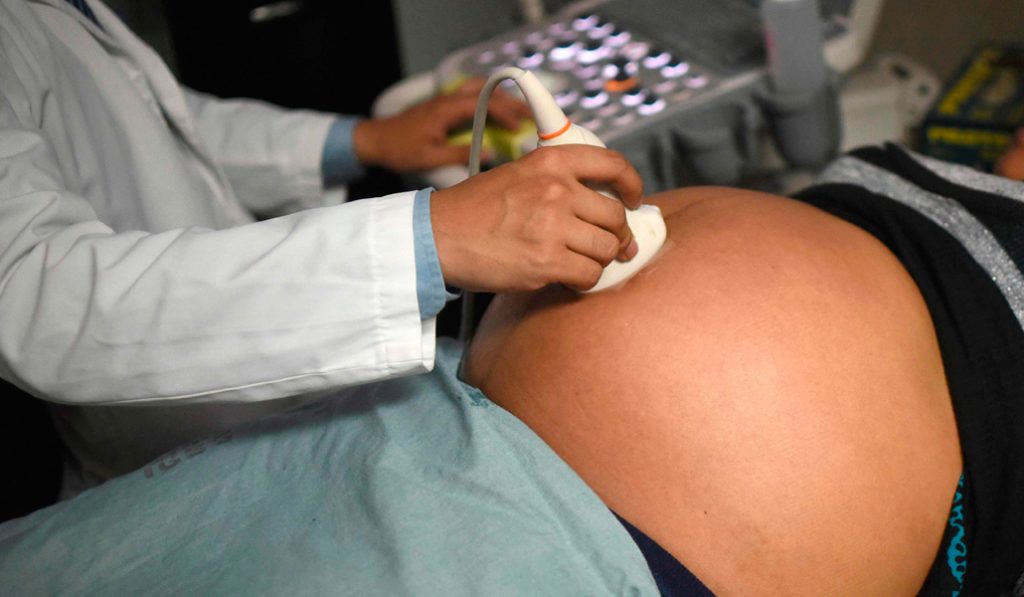The Constitutional Court protects the adoption of a minor born through surrogacy in Ukraine

The Spanish Constitutional Court has granted amparo to a woman whose request to adopt her husband’s child, born through surrogacy in Ukraine in November 2016, was initially denied. The child had been registered as the husband’s in the Civil Registry of the Spanish Embassy in Kiev. Upon the family’s relocation to Spain, the woman sought to adopt the child, being the spouse of the child’s biological father. Initially, the trial court granted the adoption, but this decision was overturned by the Provincial Court after an appeal by the Public Prosecutor’s Office, citing potential fraud in the attribution of paternity as outlined in the surrogacy contract.
The unanimous decision, with Vice President of the court, Inmaculada Montalbán, as the rapporteur, ruled in favor of the trial court, allowing the adoption. The ruling explains that during the proceedings, the petitioner also sought to adopt a second child of her husband, born through surrogacy in the same country, and in that case, the adoption was granted.
The petitioner and her husband, who intervened in the process on behalf of themselves and their two minor children, sought amparo before the Constitutional Court, arguing that the judicial decision denying the adoption violated, among other things, the right to a reasoned and legally grounded judicial decision, given the illogical reasoning followed by the Provincial Court in denying the adoption and its failure to adequately consider their family circumstances and the best interests of the affected child.
Furthermore, they contend that the differential treatment of the two adoption requests by the petitioner violates the right to equality and non-discrimination of all members of the family unit. In its ruling, the Constitutional Court acknowledges that in contexts such as the one analyzed in this case, where the birth of the child originated from surrogacy abroad, “the determination of the child’s parentage in favor of the person who entered into that contract to fulfill their desire to become a parent may conflict with constitutionally recognized values and rights.”
However, it considers that the judicial decision denying the adoption of the child violates the fundamental right to effective judicial protection under Article 24.1 of the Constitution, as it, instead of focusing on the object of the process, verifying whether the requirements for adoption were met, “cast doubt on the paternity, which was and is registered in the Spanish civil registry, based on mere presumptions.” Finally, in assessing the best interests of the child, the judicial decision also failed to consider the legal uncertainty it caused in the mother-child relationship forged between the petitioner and the child, nor the impact of such a decision on the child’s identity formation.
The Constitutional Court’s ruling explains that, in order to avoid prolonging the legal uncertainty in this case, it is appropriate to uphold the decision of the trial court to “establish the emotional bond between the petitioner and the child.” This is done after “balancing the competing interests and verifying compliance with the legally required adoption criteria.”
Background and Context
Surrogacy in Spain
Surrogacy, particularly commercial surrogacy, remains a contentious issue in Spain. The practice involves a woman carrying a pregnancy with the intention of relinquishing the child to another person or couple after birth. While surrogacy arrangements are legal in some countries, Spain has a complex legal framework that prohibits commercial surrogacy and only permits altruistic surrogacy under strict conditions.
Legal Challenges in Surrogacy Cases
Surrogacy cases often present legal challenges, especially when they involve international elements, such as surrogacy arrangements conducted in countries where the practice is legal but may conflict with the legal framework of the intended parents’ home country. Issues related to parentage, citizenship, and adoption can arise, leading to complex legal proceedings and conflicting decisions at various levels of the judicial system.
Constitutional Protection and Amparo
In Spain, amparo is a legal remedy granted by the Constitutional Court to protect fundamental rights guaranteed by the Constitution. Individuals can seek amparo when they believe their constitutional rights have been violated by public authorities’ actions or decisions. Amparo proceedings aim to ensure effective judicial protection and remedy violations of constitutional rights.
Case Overview
Initial Adoption Request
In the case under review, a Spanish couple sought to adopt a child born through surrogacy in Ukraine. The child was registered as the husband’s in the Spanish Civil Registry at the Embassy in Kiev. Upon returning to Spain, the couple initiated the adoption process, with the wife petitioning to adopt the child as the spouse of the biological father.
Trial Court Decision
The trial court initially granted the adoption, recognizing the legal relationship between the child and the petitioner. The court likely considered the best interests of the child, the family’s circumstances, and the established emotional bond between the petitioner and the child. However, this decision was subsequently challenged on appeal.
Provincial Court Appeal
The Provincial Court overturned the trial court’s decision following an appeal by the Public Prosecutor’s Office, which raised concerns about potential fraud in the surrogacy arrangement. The court’s decision to revoke the adoption likely stemmed from doubts regarding the validity of the surrogacy contract and the attribution of paternity, despite the child being legally registered as the husband’s in the Spanish Civil Registry.
Constitutional Court Appeal
In response to the Provincial Court’s decision, the couple sought amparo before the Constitutional Court, alleging violations of their constitutional rights, including the right to effective judicial protection and the right to equality and non-discrimination. They argued that the Provincial Court’s decision failed to consider their family circumstances and the best interests of the child, instead relying on presumptions and unsupported allegations of fraud.
Constitutional Court Ruling
Legal Analysis
The Constitutional Court conducted a comprehensive analysis of the legal and constitutional issues raised in the case. It examined the competing interests at stake, including the petitioner’s right to adoption, the child’s best interests, and the integrity of the legal framework governing surrogacy arrangements.
Protection of Constitutional Rights
The Constitutional Court emphasized the importance of protecting fundamental rights, particularly in sensitive cases involving children and family relationships. It reiterated the principle of the best interests of the child as a primary consideration in all decisions affecting them, including adoption and parentage determinations.
Judicial Review and Reasoning
The court scrutinized the Provincial Court’s decision, highlighting deficiencies in its reasoning and failure to provide adequate legal justification for overturning the trial court’s adoption decree. It criticized the reliance on conjecture and unsubstantiated allegations of fraud, noting that such considerations should not undermine the legally established parent-child relationship.
Equality and Non-Discrimination
Addressing the issue of differential treatment between the two adoption requests made by the petitioner, the Constitutional Court underscored the principle of equality and non-discrimination enshrined in the Constitution. It rejected any arbitrary distinctions based on the circumstances of the surrogacy arrangements, affirming the petitioner’s right to equal treatment under the law.
Legal Certainty and Family Stability
Recognizing the importance of legal certainty and stability in family relationships, particularly in cases involving surrogacy, the court emphasized the need to uphold established parent-child bonds and protect the child’s emotional well-being. It cautioned against decisions that could disrupt these relationships and undermine the child’s sense of identity and belonging.
Conclusion and Remedies
In its ruling, the Constitutional Court upheld the trial court’s adoption decree, affirming the petitioner’s right to adopt the child as her own. It ordered the immediate enforcement of the adoption decree to prevent further legal uncertainty and ensure the child’s integration
into the family unit. Additionally, it emphasized the need for legislative clarity and comprehensive regulations regarding surrogacy to prevent future conflicts and uphold constitutional rights.
Implications and Future Considerations
Legal Precedent
The Constitutional Court’s ruling sets an important legal precedent regarding surrogacy and adoption rights in Spain. It clarifies the legal framework governing surrogacy arrangements and reaffirms the rights of intended parents to establish legal parent-child relationships through adoption.
Legislative Reform
The case underscores the need for legislative reform to address the complexities of surrogacy and provide clear guidelines for its regulation in Spain. Legislative measures should prioritize the best interests of children born through surrogacy while ensuring the protection of all parties’ rights and interests.
International Cooperation
Given the transnational nature of surrogacy arrangements, international cooperation and coordination are essential to address cross-border legal issues and ensure the effective implementation of legal safeguards. Bilateral agreements and multilateral treaties can facilitate cooperation between countries and promote harmonization of legal standards.
Ethical Considerations
Surrogacy raises complex ethical considerations regarding reproductive rights, exploitation, and the commodification of human life. Policymakers, legal experts, and stakeholders must engage in meaningful dialogue to address these ethical challenges and develop responsible regulatory frameworks that uphold human dignity and rights.
Child Welfare
Central to any legal and policy framework on surrogacy should be the protection and welfare of children born through surrogacy. Efforts should focus on safeguarding their rights, ensuring their well-being, and promoting their holistic development within supportive family environments.
Conclusion
The Spanish Constitutional Court’s decision to grant amparo in the surrogacy adoption case underscores the importance of protecting fundamental rights and ensuring legal certainty in family relationships. By upholding the petitioner’s right to adopt the child and emphasizing the best interests of the child, the court reaffirmed the principles of equality, non-discrimination, and respect for family integrity. Moving forward, legislative reform and international cooperation will be essential to address the complexities of surrogacy and safeguard the rights and welfare of all parties involved.


